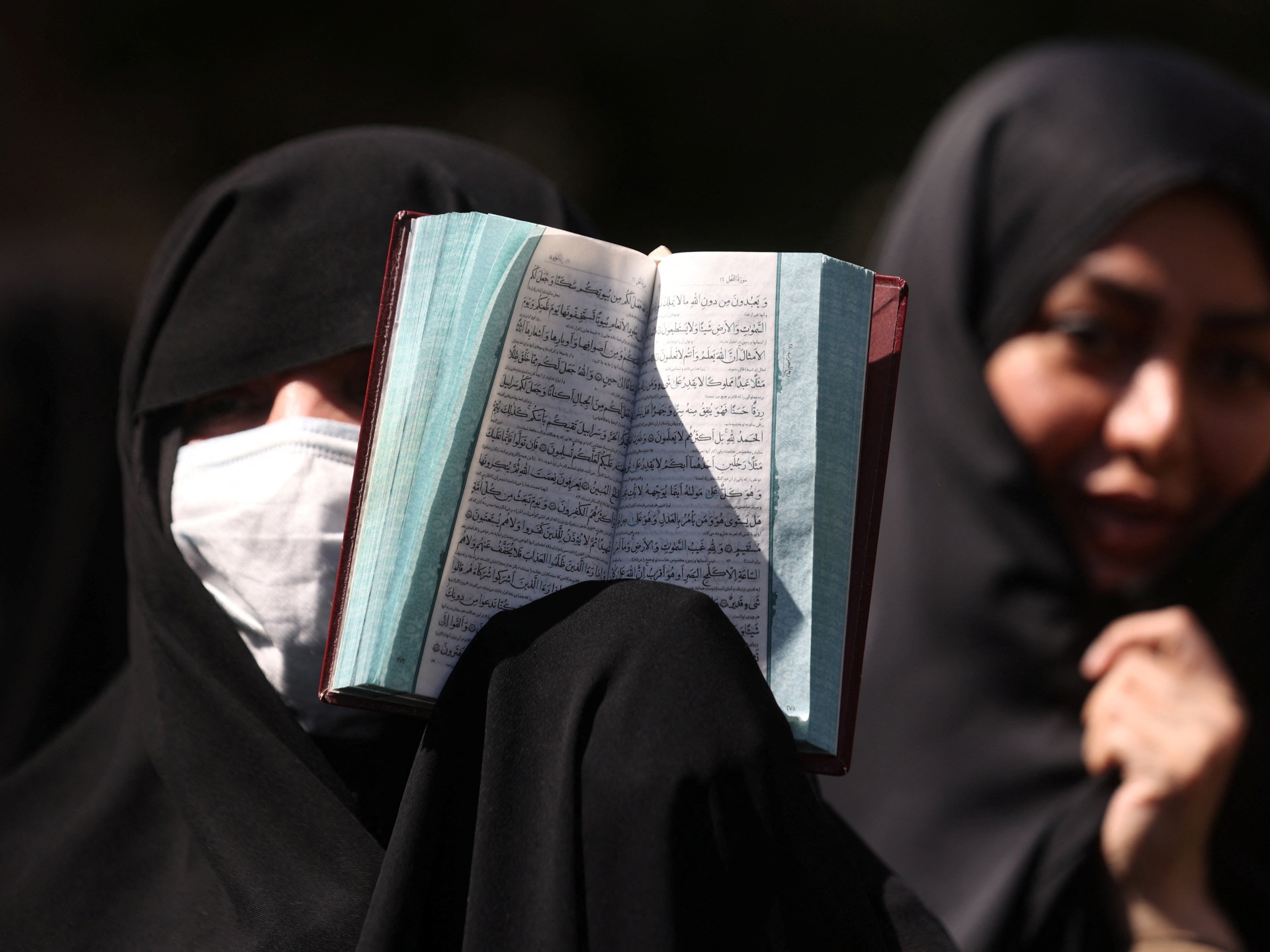The Danish government will try to find legal means that will enable authorities to prevent the burning of copies of the Quran in front of other countries’ embassies in Denmark, Foreign Minister Lars Lokke Rasmussen has said.
“The burnings are deeply offensive and reckless acts committed by few individuals. These few individuals do not represent the values the Danish society is built on,” Rasmussen said in a statement on Sunday.
“The Danish government will therefore explore the possibility of intervening in special situations where, for instance, other countries, cultures, and religions are being insulted, and where this could have significant negative consequences for Denmark, not least with regard to security,” he said.
Denmark and Sweden have found themselves in the international spotlight in recent weeks following protests where the Quran, the Islamic holy book, has been damaged or burned.
In a separate statement on Sunday, Swedish Prime Minister Ulf Kristersson said he had been in close contact with his Danish counterpart Mette Frederiksen, and that a similar process was already under way in Sweden.
“We have also started to analyse the legal situation already … in order to consider measures to strengthen our national security and the security of Swedes in Sweden and around the world,” Kristersson said in a post to Instagram.
Outrage in Muslim countries
This month, far-right activists have carried out a number of public burnings of Islam’s holy book in front of the Iraqi, Egyptian, and Turkish embassies in the Danish capital.
On Monday, two members of the ultra-nationalist Danish Patriots stomped on a copy of the Quran and set it alight in a tin foil tray next to an Iraqi flag.
Earlier this month in Sweden, an Iraqi citizen living in the country, Salwan Momika, 37, stomped on the holy book and set several pages alight.
The public burnings in the Scandinavian countries have sparked widespread outrage across Muslim countries, with Saudi Arabia, Turkey, the United Arab Emirates, Iran, Morocco, Qatar and Yemen lodging protests in response.
Sweden and Denmark have said they deplore the burning of the Koran but cannot prevent it under their rules protecting freedom of expression.
The United Nations Human Rights Council (UNHRC) earlier this month approved a resolution on religious hatred and bigotry following several burnings.
Pakistan and other Organisation of Islamic Cooperation countries backed the motion, along with a number of non-Muslim majority countries including India and Vietnam. The United States and the European Union opposed the resolution on the grounds it interfered with freedom of expression.
In his statement, Rasmussen added that whatever measure was taken “must of course be done within the framework of the constitutionally protected freedom of expression and in a manner that does not change the fact that freedom of expression in Denmark has very broad scope”.



I’ll go ahead and say “just copy the German laws”. §166 StGB:
Historically speaking that section has been introduced after the 30 year war, when Lutherans and Catholics had it out for each other. It’s why you don’t see Lutherans calling Catholics Idolaters any more even though they still pray to Mary.
Apostasy, blasphemy, also religious critique etc. are all perfectly fine but if you’re using religion as a vector of insult to disturb the public peace that’s crossing the line. Burn all the Qurans you want just don’t make a show out of it. Or print “The Quran, the holy Quran” on rolls of toilet paper and send them to public TV stations and mosques (actually happened).
1 “ideology” there is an iffy translation, what is meant is Weltanschauung. Say, Daoism is not a religion in the usual (German/western) sense but definitely a philosophy with deep epistemology and thus qualifies. So is Humanism.
One problem with this sort of law is that it only ever targets minority religious opinions. You’d never see a priest get prosecuted for telling atheists they deserve to burn in hell, for example.
A German saying applies there: Where there’s no complainant, there’s no judge.
The atheists could file a complaint and force the issue.
If not then there’s a larger problem with society.
Ideally it would work that way. The problem is that it never has worked that way.
That’s exactly what conservatism is: the effort to conserve privilege and impunity.
Rights for me, but not for thee.
Damn, up to 3 years for that is way too harsh.
It’s practically impossible to get sentenced to the maximum unless you really are trying to. The toilet paper Quran guy got one year probation, and the guy had previous offences, was unregenerate, and, quote the judge, “considerably infatuated”. You have to leave room in the sentencing structure for recalcitrant repeat offenders, people who behead cows in Hindu temples, suchlike. The vast, vast majority of cases are dealt with by fines (standard German rate of one day of prison equals one day of disposable income for judgements under a year).